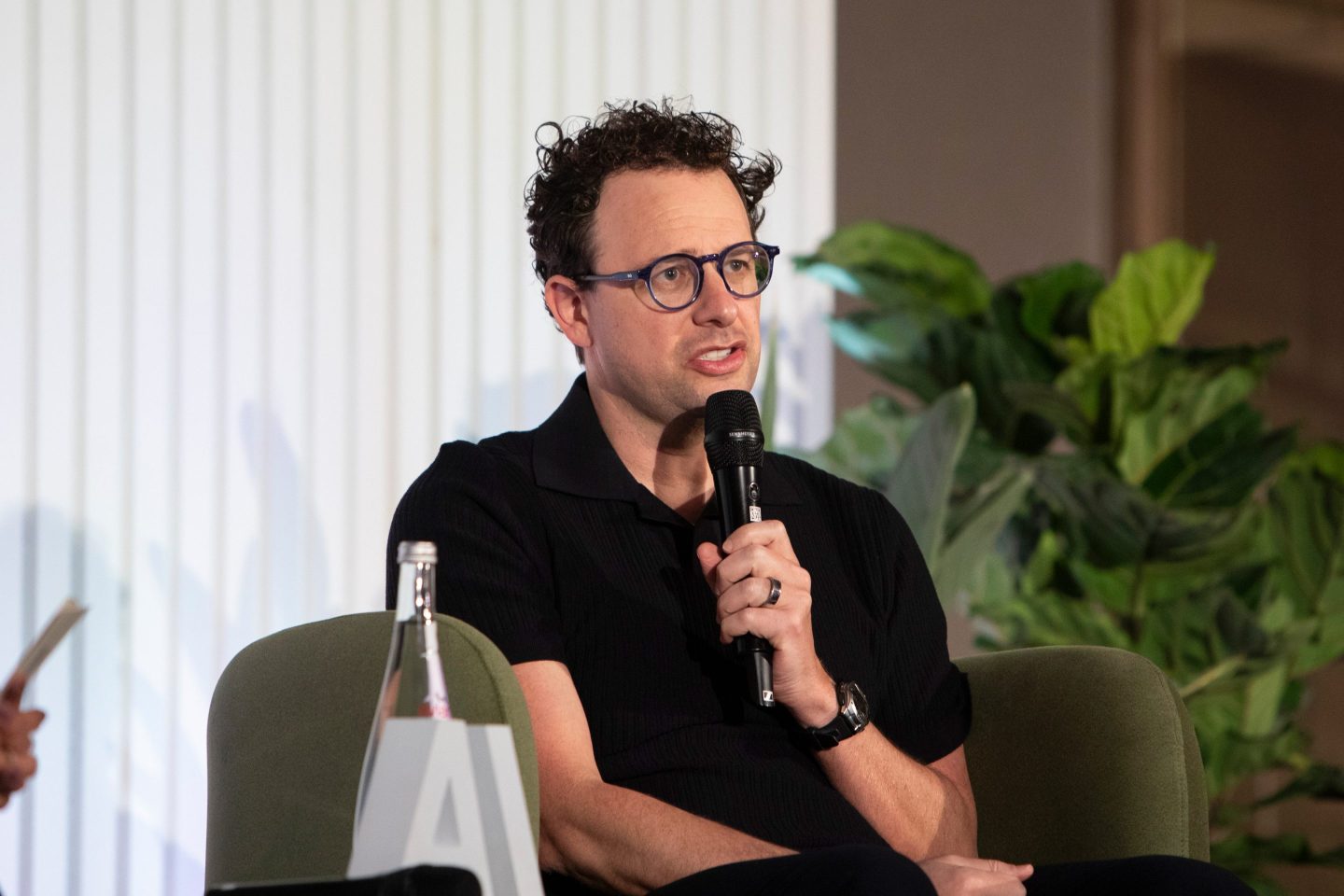Dear Work Space,
I’m having a tough time getting my professional confidence back after a very brutal firing last year. I got fired in May of 2021 from a start-up I helped build, as a contractor and then as an employee, for over six years. For five of those six years, I was the only employee/contractor other than the owner who showed up to take credit. In hindsight, it was unhealthy and our skills and needs grew in different directions. Knowing the owner as well as I do, I realize now that they needed to villainize me in order to make the cut that we should have come to mutually.
I was fired for a mistake that didn’t happen, and the rationale was that the content I was creating was “holding them back.” That bothers me because a program I wrote, developed, and found sponsors for is still their highest piece of passive income, bringing in an estimated $2 million a year, based on what their advertisements say.
My confidence hasn’t rebounded from this fully, and I feel a huge sense of impostor syndrome moving into the job market now. Someone is still making a lot of money off my ideas and problem-solving while I’m scrambling to find something that fits my skill set. How can I get my professional confidence back again?
Morgan
Dear Morgan,
Working in a situation where you don’t feel valued is tough and being pushed out of a company you helped build is even more challenging. I can totally see why you’re still grappling with this nearly a year later. I want to share an anecdote that was shared with me when I was discussing your situation with Tonna Obaze, chief of staff and investor at Harlem Capital, a NYC-based venture capital firm.
Tonna talked about one of the founders they’ve invested in, Stacy Spikes, who built and scaled MoviePass, and was later pushed out of the company.
MoviePass, the now-infamous subscription service for movie theaters, grew out of Stacy’s work as the founder of Urbanworld Film Festival. While the festival was renowned for its diverse roster of programming, Stacy saw how difficult it was for some of the films they featured to find distributors. He wanted to create a new model to better connect movie fans with the films they wanted to see, and from there MoviePass was born.
MoviePass was acquired by Helios and Matheson, a social and data analytics company in 2017, and Stacy was fired shortly after. New management wanted to slash the price of a MoviePass subscription to the $10 bucks all-you-can-watch model that earned the start-up plenty of hype and lots of subscribers but ultimately destroyed its long-term viability. Stacy had already done the research on subscription models and knew that these low prices were ultimately untenable. When he said as much, Tonna explained, Stacy was fired even though he had conceptualized the business, helped expand its reach, and built a customer base.
Tonna noted another parallel between Stacy’s situation and yours: the emotional toll of being dismissed by your colleagues when you’re passionate about creating something new to fill a customer need you’ve identified. She stressed that what you’re going through “isn’t unique” and frequently happens to entrepreneurs.
We’re not talking about an entrepreneur whose product didn’t ship or who had to pivot their business,” Tonna said. “[We’re] talking about something that feels very personal when your work and your efforts are not attributed to you, and you don’t feel like how you’re treated matches the value that you gave to an organization.”
While you are dealing with your own situation, it’s unfortunately a scenario that happens repeatedly in the business world, even within high-profile companies. People come up with the ideas, know the idea and the business it spawned inside-out, and still it may not be enough. It shouldn’t work this way, but it does.
But knowing this can happen to other people provides some cold comfort. So, I reached out to a few people who I thought could offer you some perspective, based on their own experiences.
Before we get their advice, I want to take a moment to validate your feelings. I understand why this experience has put a dent in your confidence and why you might be frustrated that someone continues to profit from your past work. Also, each time I’ve read this question, what stood out to me is what you built, how committed you were to scaling it, and how much you understand the business environment you were working in.
You are bigger than this past experience and going forward, that’s important to remember.
Stacy’s MoviePass story now has a new chapter, though it took him some time to get there. He went on to create a new company, PreShow, a service where gamers can watch ads to get free in-game currency, which has received $3 million in seed funding. MoviePass ultimately went bankrupt and shut down, and in November 2021, Stacy bought back the company and announced he has plans to relaunch it this year.
What Stacy has done might not be possible for everyone, but it offers you an important lesson: While it might be hard to see someone else run with an idea of yours, remember that no one can truly do what you do.
“They can steal your idea, but they can’t steal your execution,” Tonna said. “They can’t steal the magic that you bring to it. So, even if someone has taken your idea, and they’re making money off of it, the fact that they are continuing to make money off of it should be a signal to you that if you did it once — you could do it again.”
Tonna and her colleagues at Harlem Capital understand the challenges facing entrepreneurs because they work with them every day. I reached out to her because I see you as someone who has the capacity to build something new, based on what you built before, and I wanted to connect with people who understand the challenges that you’ve faced.
You didn’t call yourself an entrepreneur in your question, but I would encourage you, if you’re not already doing so, to think of yourself that way. You were one of two people who built a business from the ground up. You conceptualized and built a new solution to an existing problem and found funding to make it sustainable.
My friend Núria Net is the co-founder of the podcasting company La Coctelera Music, and she had an experience with some similarities to yours. Before launching La Coctelera, Núria was one of the cofounders of Remezcla, a website focused on Latinx music and culture. The site was groundbreaking, but Núria says one of her partners created such a toxic environment that both she and Claire Frisbie, the other female co-founder, decided to leave the company altogether in 2010 due to burnout. After they left, the remaining co-founder, a man, did not credit them as co-founders on the site.
Núria, along with more than a dozen other former employees, all Latinas, spoke to Jezebel in 2020 about their experience at Remezcla.That Jezebel article, published more than a decade after Núria left Remezcla, was the first time she talked publicly about her experience being pushed out of the company that she founded.
When she left, Núria got a graduate degree and found that the people she met at school saw her as a founder of the site. In her next job as a deputy editor at Univision, a large corporation with a substantial budget, she regained some confidence and realized how impressive it was that she’d built something significant with so few resources.
“My career kept going, and the Remezcla brand kept going,” Núria said.
After the Jezebel article was published, Núria and Claire were finally credited on the website as co-founders.
I see a few lessons to learn from Núria and Stacy’s stories. Both took time to process their experiences in their own ways. Both found ways to highlight what they created in their past jobs as they worked on new ventures. And both focused their career narratives on the story of what they can build, instead of dwelling on the difficulties they faced in their last positions.
As a result, over time, they’ve been able to shift how they relate to that past experience. They can acknowledge the challenging environments they were in from a more objective place than they could immediately after they left. They’re both able to talk about their past experiences in a way that shows what they’ve learned from that experience and how they’ve grown from it.
No one can take away the significance of what you built. It may be hard to see now, when you’re still processing the disappointment. There’s no shame in being affected by your experience or needing some time to recover and repair your confidence after working in a toxic environment. (Here’s another Work Space column with some tactics on how to recover after leaving a toxic job.)
As you privately process how that unhealthy work environment damaged your confidence, you can start finding ways to publicly demonstrate that what you built before shows you can build something new again. It’s not easy, but try not to measure your worth based on people who don’t matter, like your old boss who clearly didn’t value your work. Think about people who are doing things you care about and want to be a part of and how you can show them how you can contribute to what they’re building.
Rick Turoczy, co-founder and general manager of PIE, a start-up accelerator focused on providing support to founders and entrepreneurs, also emphasized how your work at your last job is one of the best testaments to what you can do in the future. The fact that the company is still profiting off of a piece of technology that you created shows that you are creative and talented.
Rick told me that you have the potential to do something “even more amazing” in the future, based on your experience at the start-up.
He emphasized the importance of looking at the challenges you experienced with some distance. How could you have potentially done things differently when you were there? What parts of the work were important to you? What do you want to have in your next job? And what do you want to make sure you avoid?
“Figure out how you personally can establish that distance and objectivity so you can analyze your experience in a meaningful way, or have a trusted mentor or advisor who can help you do that,” Rick said. “You have to recognize that no matter how intelligent and creative you are, there’s always a different perspective that can be informative to you.”
Whether you get a new job working for someone else or if you decide to build something yourself, your last job will become just one piece of your broader career narrative.
As you develop the narrative around what you’ve built, you’ll find colleagues who are energized by the things that you’re excited about and how you want to tackle problems. Those people are so much more important than old bosses who didn’t understand or agree with how you wanted to approach the problems you were solving. People can buy, borrow, or steal your ideas, but they can’t replicate your unique vision and execution.
Sending you lots of good vibes,
Jen
Work Space is a monthly Q&A column tackling the work challenges that keep you up at night. You can read all columns here. If you want advice on something you’re navigating at work, send your questions to workspace@fortune.com.











